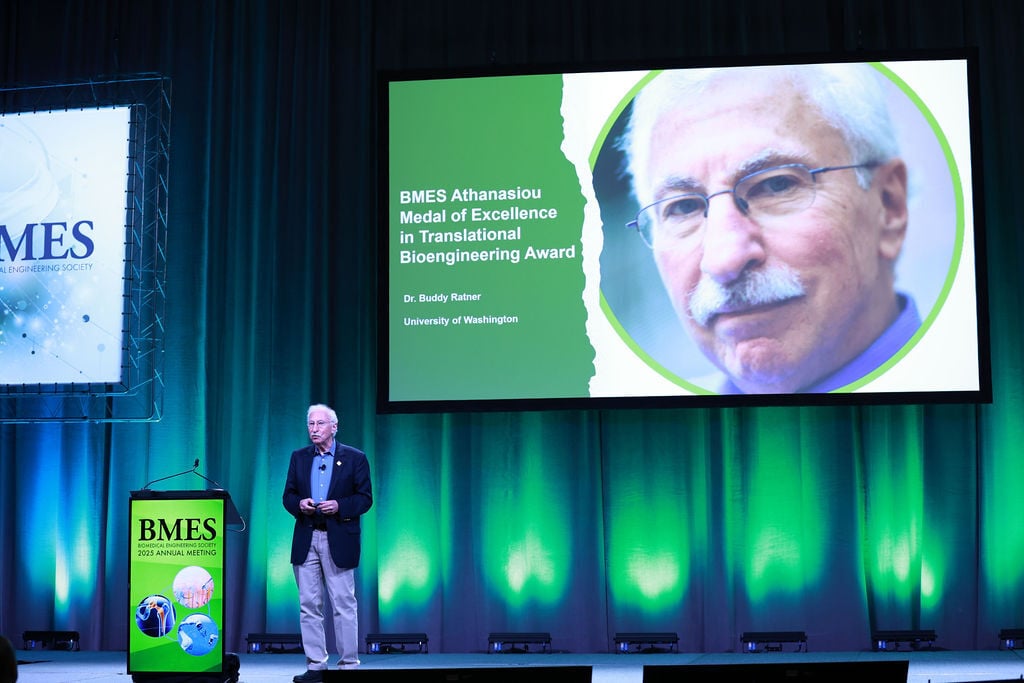Translation as Transformation: Buddy Ratner’s Journey Through Biomedical Engineering
For Buddy Ratner, BMES Member and Professor of Bioengineering and Chemical Engineering at the University of Washington, translational bioengineering...
BMES serves as the lead society and professional home for biomedical engineers and bioengineers. BMES membership has grown to over 6,700 members, with more than 110+ BMES Student Chapters, three Special Interest Groups (SIGs), and four professional journals.
Welcome to the BMES Hub, a cutting-edge collaborative platform created to connect members, foster innovation, and facilitate conversations within the biomedical engineering community.
Discover all of the ways that you can boost your presence and ROI at the 2024 BMES Annual Meeting. Browse a range of on-site and digital promotional opportunities designed to suit any goal or budget that will provide maximum impact.
Dr. Cato T. Laurencin, CEO of The Connecticut Convergence Institute for Translation in Regenerative Engineering at UConn Health, has created a new classification system for cell-based therapies.
The objective was to create a strategy that will benefit patients, encourage regulatory efforts, and further inform the scientific community, according to UConn Health.
“The rapidly expanding direct-to-consumer marketplace allows for public consumption of unregulated treatments, so we identified an opportunity to enhance regulation and ensure greater public health,” said Laurencin, who is a BMES fellow.
The new system will aid in categorizing proposed interventions to determine suitability for immediate clinical use or therapies that require further investigational studies prior to clinical use.
Utilization of this system will result in increased regulation and widespread standardization, which in turn decreases patient health and financial risks associated with unregulated treatments.
Doctors at UConn Health have developed the first classification system for regenerative cell-based therapies designed to stratify therapies based on scientific evidence and potential for harm.
The unregulated U.S. stem cell market has been widely reported as it offers potentially harmful therapies to patients without FDA approval. Currently, there are no regenerative cell-based therapies approved by the FDA, although high demand for such treatments is ongoing.
In light of these concerns, the current climate has generated demand for a systematic method to assess potential therapies.
Read more in Regenerative Engineering and Translational Medicine.

For Buddy Ratner, BMES Member and Professor of Bioengineering and Chemical Engineering at the University of Washington, translational bioengineering...

Two new Editors-in-Chief were selected for two prestigious Society journals: Keefe Manning, was named the new Editor-in-Chief of the Cardiovascular...

As the biomedical engineering community continues to evolve, the need for forward-looking dialogue around research, innovation, and funding has never...

Engineering researchers have developed a device the size of a wristwatch that can monitor an individual's body chemistry to help improve athletic...

The Biomedical Engineering Society (BMES) is devoted to developing and utilizing biomedical engineering to improve health and well-being for all...

Wichita State University is moving forward with a plan to create a biomedical engineering doctoral program, the universityannounced.The new Ph.D. in...